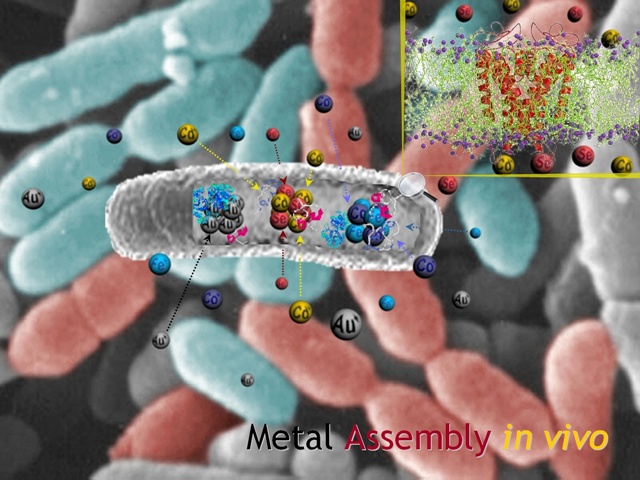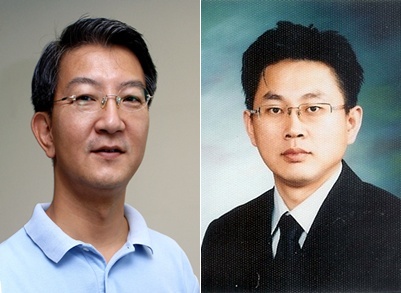New Process for Synthesizing Metal Nanoparticles Developed
KISTI PR 2011-10-04 View. 16,541

Korean researchers have developed a new process that allows for synthesis of metal nanoparticles of diverse sizes and kinds through a novel bioengineering method.
'New technology to allow for creation of metal nanoparticles using microorganisms'
Prof. Lee Sang-yup and research professor Kim Tae-jung of KAIST(Suh Nam-pyo, President) said on September 1 that they had developed a technology that allows for the production of quantum dots and magnetic nanoparticles, and metal nanoparticles of diverse types, which had previously not been synthesized, by regulating the secretion of heavy metal-absorbing protein in E-coli and peptides; the technology also allows for free control of the size of metal nanoparticles by adjusting the density of metallic ions that are added in the process.
The study was published on August 18 in the online edition of Angewandte Chemie International Edition, a world-renowned chemistry journal, and was introduced as a "hot paper," earning recognition for its significance.
Prof. Lee Sang-yup and research professor Kim Tae-jung
The researchers excreted metallothionein, a protein that binds with metallic ions, and phytochelatin, a peptide, either independently or through combinations in E-coli, and exposed diverse metallic ions to the cultured fluid, thus generating diverse metal nanoparticles.
By regulating the excretion of metal-binding protein, and the density of metallic ions, the researchers generated quantum dot, nano-magnet, and gold nanoparticles of diverse sizes, as well as metal particles that had never before been chemically synthesized. If recombinant E-coli cells are separated through centrifugation and crushed, thus removing various organic substances, only the synthesized metal nanoparticles can be acquired easily.
By attaching diverse bioactive materials to the surface of these metal nanoparticles, the researchers presented the possibility of using biologically synthesized nanoparticles for research on various drug delivery systems and developing medical diagnostic tools that use animal cells.
Prof. Lee said, "The study presented a technology that allows for efficient and convenient synthesis of desirable nanoparticles through biotechnological culturing of recombinant microorganisms instead of the conventional physical and chemical process," adding, "The technology will have diverse applications in medicine and bioengineering research in the future."
The study was conducted with support from the World Class University program, which is operated by the Ministry of Education, Science and Technology(Lee Ju-ho, Minister) and the Korea Research Foundation(Park Chan-mo, Chairman), and from the "Industrial Fusion Technology, Industrial Core Technology Development Program" sponsored by the Ministry of Knowledge Economy(Choi Kyung-hwan, Minister).
Kim Joseph
joesmy at HelloDD.com twitter: at ssebiU
[September 27, 2010]
- - - - - - -
Source - HelloDD.com

 Delete Article!
Delete Article!